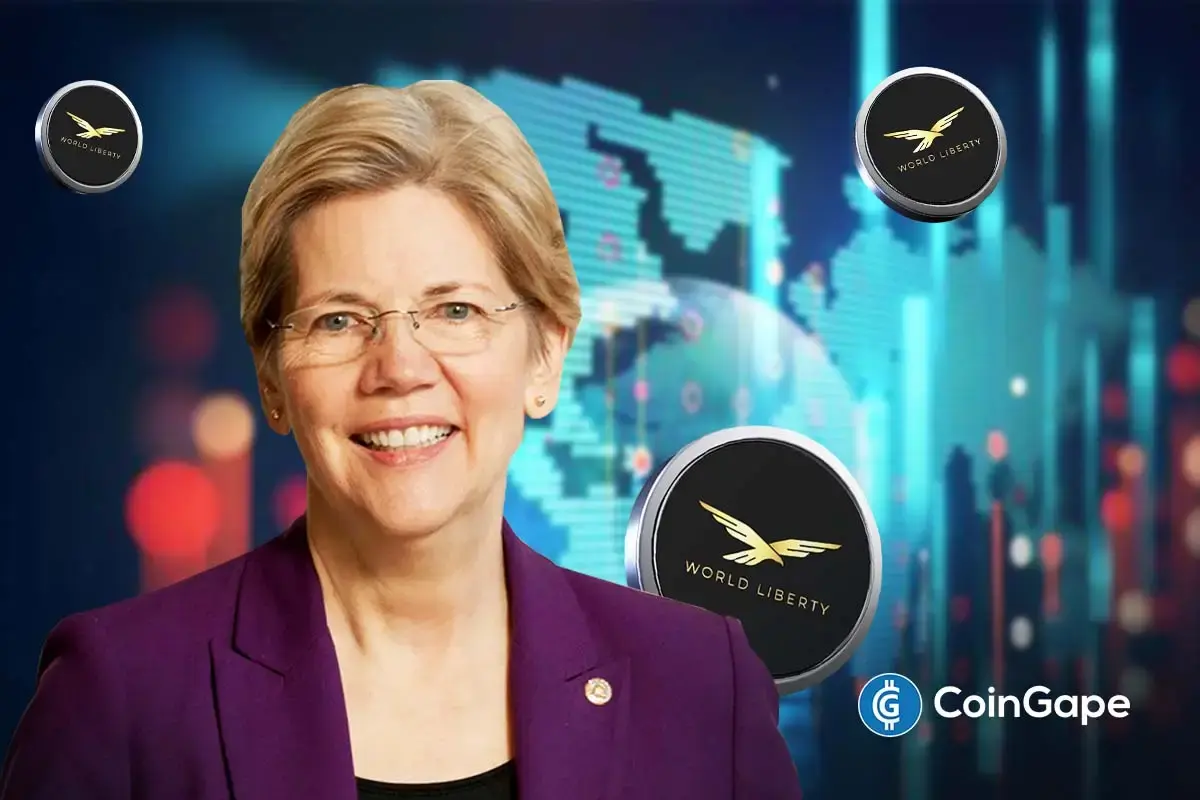Senator Elizabeth Warren Calls Out Stablecoin Bill GENIUS ACT, Here’s Why

Highlights
- Warren warns the GENIUS Act could let tech giants issue stablecoins that bypass banking rules.
- Lawmakers debate GENIUS Act as Amazon, Walmart explore launching digital currencies.
- Trump’s stablecoin ties add tension as Senate prepares final GENIUS Act vote.
Senator Elizabeth Warren is urging Congress to amend the GENIUS Act, warning that it may allow tech billionaires to issue private digital currencies. She expressed concern that these stablecoins could track consumer purchases, collect personal data, and push out smaller competitors.
Senator Elizabeth Warren Concerns Over Corporate-Issued Stablecoins
Senator Warren responded publicly after discussions emerged about major companies like Amazon and Walmart considering launching their own stablecoins. In a series of X posts, she warned that without proper amendments, the GENIUS Act would create a loophole for large corporations and wealthy individuals to introduce private currencies that could function outside of existing banking regulations.
“If Congress doesn’t fix the GENIUS Act, billionaires like Elon Musk and Jeff Bezos could launch stablecoins that track your purchases, exploit your data, and squeeze out competitors,” Warren wrote on her official account. She also warned that if these digital currencies fail, their creators may request taxpayer-funded bailouts.
Lawmakers have been debating the bill’s current structure. Critics say it lacks strong protections to prevent Big Tech and retail giants from issuing private stablecoins that could behave like unofficial digital money, raising issues related to surveillance and monopoly.
GENIUS Act Heads for Senate Vote
The GENIUS Act, formally known as the Guiding and Establishing National Innovation for U.S. Stablecoins Act, has advanced through several legislative stages. Last week, the Senate approved a cloture motion with a 68-30 vote, allowing the bill to proceed to final debate and a floor vote scheduled for Tuesday.
Originally, the bill faced strong resistance from Democratic senators who raised concerns about anti-money laundering standards, corporate issuance provisions, and stablecoins created by foreign companies. Many of those objections were addressed through revisions to the bill. However, Warren and a few others continue to call for further safeguards.
A Senate aide noted, “The family is the difficult part,” in reference to U.S. President Donald Trump’s ties to World Liberty Financial, a company that recently introduced its own stablecoin. Trump’s growing connections to crypto ventures have also raised questions about regulatory fairness and influence.
Public Debate on Privacy and Government Control
The proposed bill has sparked public conversations about financial privacy and the role of government oversight. Several social media users responded to Warren’s comments by pointing out her prior support for a central bank digital currency (CBDC), which could also involve data collection.
“You supported a Federal Reserve-issued consumer CBDC,” wrote crypto lawyer John E. Deaton. “So as long as it’s the government that’s doing all the tracking and surveillance it’s okay?”
Other commentators argued that corporate-issued stablecoins could introduce healthy competition in the financial sector. “This bill will end the monopoly your bank donors have on tracking our purchases,” wrote Fred Rispoli, another vocal figure in the crypto space.
Supporters of the bill argue that the GENIUS Act would offer a legal framework for stablecoins, improve consumer access, and set clear rules for the market. Yet, critics say that without restrictions on corporate involvement, the risks outweigh the benefits.
Play 10,000+ Casino Games at BC Game with Ease
- Instant Deposits And Withdrawals
- Crypto Casino And Sports Betting
- Exclusive Bonuses And Rewards

- Senate Eyes CLARITY Act Markup This Month as Banks, Crypto Continue Stablecoin Yield Talks
- Why XRP Price Rising Today? (2 March)
- Breaking: Bitcoin Price Rises to $70k as Gold Crashes Amid U.S.-Iran Conflict
- Bitcoin News: Anthony Pompliano’s ProCap Buys 450 BTC, Gold Bug Peter Schiff Reacts
- Fed Rate Cuts More Likely If U.S.-Iran Conflict Extends, Arthur Hayes Predicts
- Top 5 Historical Reasons Dogecoin Price Is Not Rising
- Pi Coin Price Prediction for March 2026 Amid Network Upgrade, KYC Boost, Rewards Distribution
- Gold Price Nears ATH; Silver Eyes $100 Breakout on Us- Iran War
- Bitcoin And XRP Price As US Kills Iran Supreme Leader- Is A Crypto Crash Ahead?
- Gold Price Prediction 2026: Analysts Expect Gold to Reach $6,300 This Year
- Circle (CRCL) Stock Price Prediction as Today is the CLARITY Act Deadline

 Buy $GGs
Buy $GGs
















